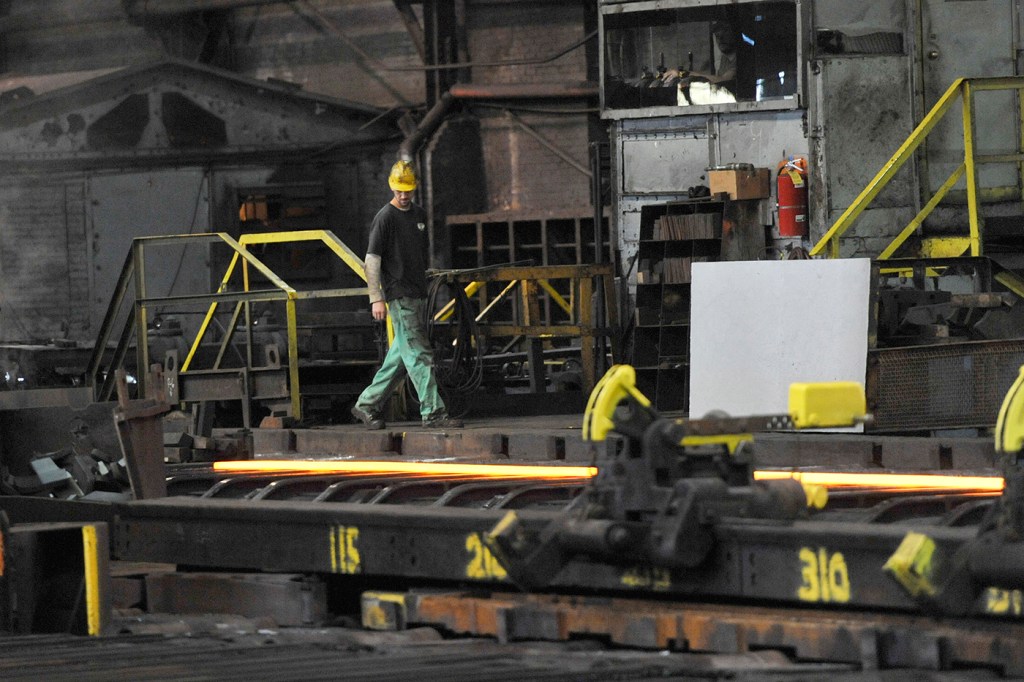Economist: Consumers wouldn’t feel impact of tariffs in short term

The steep trade tariffs imposed by President Donald J. Trump last week likely won’t affect U.S. consumers much in the short term, according to Northeastern economics professor William Dickens. But some U.S. businesses and states could feel the sting in the longer term if trade wars break out with countries in Europe and Asia.
Dickens, Distinguished Professor of Economics and Social Policy, said the import taxes Trump levied—25 percent tariff on steel and 10 percent on aluminum, excluding imports from Canada and Mexico—“won’t have that great of an impact initially.” The tariffs are set to take effect next week.
“By the time products get to the consumer, most of the cost is in labor and other materials and not the raw steel and aluminum,” he said. “There will be some impact, but it won’t be that noticeable to your average consumer, nor will there be much effect on the U.S. production of steel and aluminum.”
The bigger risk, Dickens said, lays in what happens after these tariffs have been put in place. “If we get into a full-blown trade war with all our allies and China, we’re in for potentially big impacts on things that consumers really care about,” he said.
Such retaliatory measures could target specialized industries that export heavily to Europe, according to news reports. European Commission President Jean-Claude Juncker said last week that the European Union stands to impose tariffs on Harley-Davidson motorcycles (made in Speaker Paul Ryan’s home state of Wisconsin); on bourbon (from Senate Majority Leader Mitch McConnell’s home state of Kentucky); and on Levis or orange juice from Florida.
“These are products Europeans buy from us that would have very localized impacts on people,” Dickens said.
By the time products get to the consumer, most of the cost is in labor and other materials and not the raw steel and aluminum. There will be some impact, but it won’t be that noticeable to your average consumer.
William Dickens, University Distinguished Professor and the chair of the Department of Economics
Additionally, Dickens said he “fully expects” there will be a case taken to the World Trade Organization against the U.S. for the tariffs, which were issued under a provision of trade law that allows the president to take broad action to defend American national security.
“I think a WTO case can be made that there is no reasonable defense purpose for this, which would give other nations the authority from the WTO to take retaliatory action against the U.S.,” he said.
Even in that case, Dickens said, it’s more likely the U.S. would simply be isolated from world trade than that a full-scale global trade war would emerge.
“We had been a leader in pushing for liberal trade policies; we led the world since the days of [President Franklin Delano] Roosevelt on building international trade relations, negotiating bilateral and multilateral trade deals, and that’s been enormously good for the U.S. and for the rest of the world,” Dickens said.
Being isolated from that “would hurt,” he added, but ultimately wouldn’t be devastating for the U.S., a country big enough to provide most of its own needs. Providing the raw materials necessary for manufacturing would mean setting up materials plants, creating a window of disruption in the country, Dickens said.
There would also be a national job shuffle—old positions being cannibalized by new industry, which Dickens said is part of a healthy economy but means some disruption along the way.
“We’d suffer some lost income in the long run,” he said. “But we’d see a lot of change in people’s jobs moving away or evolving.”





